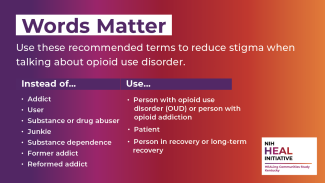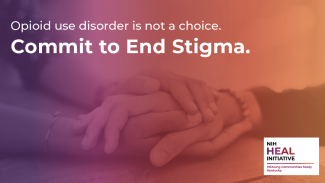Haga clic aquí para ver esta página web en español.
Stigma is the disapproval of, or discrimination against, a person based on a negative stereotype. Stigma often affects how people with opioid use disorder (OUD) are treated, making it difficult for them to find jobs, places to live, and medical care. Even if unintentional, the hurtful words and actions of others can keep people who are struggling with OUD from getting help and staying in treatment for as long as they need it.


